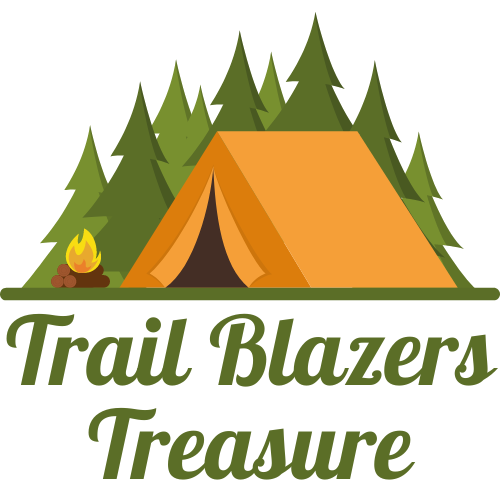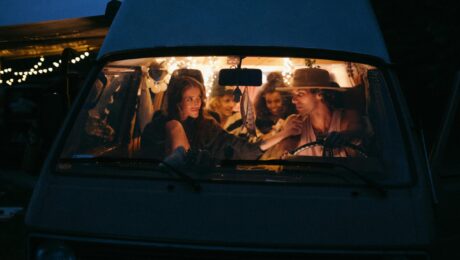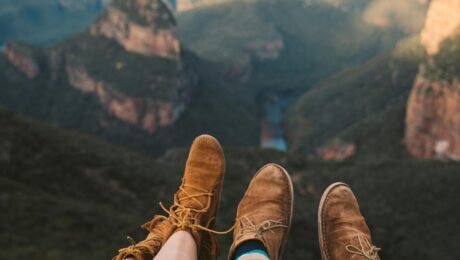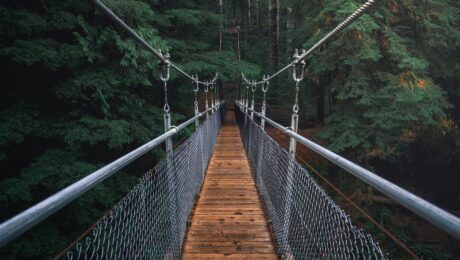The Art of Packing Light for a Multi-Day Hiking Trip
Embarking on a multi-day hiking trip can be an exhilarating experience, allowing you to disconnect from the hustle and bustle of everyday life and immerse yourself in nature. However, one of the biggest challenges when preparing for such a trip is deciding what to pack. Packing light is essential for ensuring that your hike is enjoyable and manageable. In this blog post, we will provide you with some tips and tricks on how to pack light for a multi-day hiking trip without sacrificing comfort or safety.
The first step in packing light for a multi-day hiking trip is to carefully consider your gear and clothing choices. Opt for lightweight, compact items that serve multiple purposes whenever possible. Invest in high-quality, lightweight camping gear such as a tent, sleeping bag, and stove. Choose clothing made from moisture-wicking materials that are versatile enough to layer for changing weather conditions. Consider the weight of each item you pack and prioritize essentials over unnecessary luxuries.
Next, it’s important to streamline your packing list by eliminating any items that are not absolutely necessary. Do you really need three pairs of shoes or five different gadgets? Be ruthless in cutting down your list to the essentials only. Consider factors such as access to clean water along the trail or opportunities to restock supplies at designated points. Remember that every extra pound adds up when you’re carrying it on your back for miles on end.
When it comes to food and snacks, opt for lightweight, high-energy options that require minimal preparation. Pack dehydrated meals, energy bars, nuts, and dried fruits that provide plenty of calories without weighing you down. Avoid heavy cans or bulky packaging that will only add unnecessary weight to your pack. Plan your meals ahead of time and portion them out into individual servings to save space and reduce waste.
Another key aspect of packing light for a multi-day hiking trip is organization. Use compression sacks or packing cubes to keep your gear neatly organized inside your backpack. This will not only maximize space but also make it easier to locate items quickly when needed. Keep frequently used items like snacks, maps, sunscreen, and insect repellent within easy reach so you don’t have to dig through your entire pack every time you need something.
Lastly, don’t forget about safety essentials when packing for a multi-day hiking trip. Make sure you have a reliable first aid kit stocked with essentials like bandages, antiseptic wipes, pain relievers, and blister treatment supplies. Carry a map and compass (and know how to use them) in case you get lost or lose the GPS signal on the trail. Pack extra layers of clothing in case temperatures drop unexpectedly or weather conditions worsen.
Packing light for a multi-day hiking trip requires careful planning and consideration of every item that goes into your backpack. By choosing lightweight gear, streamlining your packing list, opting for high-energy foods, staying organized, and prioritizing safety essentials, you can ensure that your hike is enjoyable and stress-free. Remember that every ounce counts when you’re carrying everything on your back through rugged terrain – so pack wisely! With these tips in mind, you’ll be ready to hit the trails with confidence knowing that you have everything you need without being weighed down by unnecessary clutter.
- Published in Uncategorized
Stargazing While Camping: Tips for an Amazing Night Under the Stars
There’s something truly magical about spending a night under the stars while camping. The peacefulness of nature, the crackling of a campfire, and the vast expanse of the night sky filled with twinkling stars can create an unforgettable experience. Whether you’re a seasoned camper or new to stargazing, there are some tips and tricks that can help make your night under the stars even more amazing. In this blog post, we’ll explore some helpful tips for stargazing while camping.
Choose the right location: When planning your camping trip, try to find a location that has minimal light pollution. Light pollution from cities and towns can make it difficult to see the stars clearly. Look for campsites in remote areas or designated dark sky parks for the best stargazing experience.
Check the weather forecast: Clear skies are essential for stargazing, so be sure to check the weather forecast before heading out on your camping trip. Cloudy skies can obstruct your view of the stars, so aim for a night with clear conditions.
Bring binoculars or a telescope: While stargazing can be enjoyable with just your eyes, bringing along binoculars or a telescope can enhance your experience by allowing you to see celestial objects in more detail. There are many affordable options available for beginner stargazers that can provide stunning views of planets, galaxies, and other celestial bodies.
Learn about constellations: Before heading out on your camping trip, take some time to familiarize yourself with the constellations visible in the night sky during that time of year. There are many mobile apps available that can help you identify constellations and learn more about their myths and legends.
Be patient and present: Stargazing requires patience and presence in the moment. Allow yourself to fully immerse in the experience by turning off distractions such as smartphones and focusing on the beauty of the night sky above you. Take deep breaths, listen to nature sounds around you, and allow yourself to feel awe at the vastness of space.
Stargazing while camping offers a unique opportunity to connect with nature and marvel at the beauty of our universe. By following these tips for an amazing night under the stars, you can create memories that will last a lifetime. So pack your camping gear, find a dark sky location, and get ready for an unforgettable stargazing experience on your next camping trip!
- Published in Uncategorized
The Ultimate Guide to Solo Camping and Hiking
Are you looking to embark on a solo camping and hiking adventure? While the idea of venturing out into the wilderness alone may seem daunting at first, with the right preparation and mindset, it can be an incredibly rewarding experience. In this ultimate guide, we will cover everything you need to know to ensure a safe and enjoyable solo camping and hiking trip.
Plan Ahead: Before heading out on your solo camping and hiking trip, it is crucial to plan ahead. Research the area you will be visiting, familiarize yourself with the terrain, and check the weather forecast. Make sure to inform someone of your plans, including your route and expected return time. It is also wise to pack extra food, water, and emergency supplies in case of unexpected situations.
Safety First: Safety should always be a top priority when camping and hiking alone. Make sure to carry a first aid kit with essential supplies such as bandages, pain relievers, and antiseptic wipes. Invest in a reliable GPS device or map and compass to navigate your way through unfamiliar territory. Additionally, familiarize yourself with basic survival skills such as building a shelter, starting a fire, and signaling for help in case of emergencies.
Pack Light: When embarking on a solo camping and hiking trip, it is important to pack light while still ensuring you have all the necessary essentials. Opt for lightweight gear that is easy to carry such as a compact tent, sleeping bag, cooking stove, and water filtration system. Remember that every pound counts when you are carrying all your belongings on your back for long distances.
Stay Mindful: Solo camping and hiking can provide an opportunity for introspection and connection with nature. Take the time to slow down, breathe in the fresh air, listen to the sounds of wildlife around you, and appreciate the beauty of the natural world. Practice mindfulness techniques such as meditation or journaling to enhance your experience and deepen your connection with yourself and nature.
Leave No Trace: As you explore the great outdoors on your solo camping and hiking adventure, remember to leave no trace behind. Respect wildlife by observing from a distance and not feeding them. Dispose of waste properly by packing out all trash and following Leave No Trace principles such as minimizing campfire impacts and respecting other visitors’ experiences in nature.
Solo camping and hiking can be a transformative experience that allows you to disconnect from the hustle and bustle of everyday life while connecting with nature on a deeper level. By following this ultimate guide filled with tips on planning ahead, prioritizing safety, packing light, staying mindful, and leaving no trace behind, you can embark on a solo adventure with confidence knowing that you are prepared for whatever challenges may come your way.
- Published in Uncategorized
How to Stay Comfortable While Camping in Cold Weather
Camping in cold weather can be a magical experience, with snow-covered landscapes and crisp, fresh air. However, staying warm and comfortable is essential to enjoying your outdoor adventure. In this blog post, we will provide you with some helpful tips and tricks on how to stay cozy and warm while camping in cold weather.
Choose the right gear: One of the most important aspects of staying comfortable while camping in cold weather is having the right gear. Invest in a high-quality sleeping bag that is rated for low temperatures, as well as a warm and insulating sleeping pad. Additionally, make sure you have proper clothing layers, including thermal underwear, fleece jackets, hats, gloves, and waterproof outerwear.
Stay dry: Keeping dry is key to staying warm while camping in cold weather. Make sure your tent is properly set up to prevent any leaks or drafts. If you anticipate rain or snow, bring a tarp to place under your tent for extra protection from moisture. Also, change out of any wet clothes as soon as possible and hang them up to dry before going to bed.
Keep moving: Physical activity generates heat, so try to stay active while camping in cold weather. Go for a hike or take a brisk walk around your campsite to keep your body temperature up. Just make sure you don’t work up a sweat, as damp clothing can actually make you feel colder.
Eat high-energy snacks: Eating high-energy snacks throughout the day can help keep your body fueled and warm while camping in cold weather. Pack foods that are easy to prepare and provide a quick energy boost, such as nuts, dried fruit, jerky, and energy bars.
Stay hydrated: It’s easy to forget about staying hydrated when it’s cold outside, but drinking plenty of water is essential for maintaining body temperature and overall health while camping in cold weather. Bring an insulated water bottle or thermos filled with hot drinks like tea or soup to keep you warm from the inside out.
Camping in cold weather can be a rewarding experience if you take the necessary steps to stay comfortable and warm. By choosing the right gear, staying dry, keeping active, eating high-energy snacks, and staying hydrated, you can enjoy all that winter camping has to offer without feeling chilled to the bone. So grab your gear and head outdoors for an unforgettable adventure!
- Published in Uncategorized
The Best Apps and Gadgets for Modern Campers and Hikers
In today’s technology-driven world, there is no shortage of apps and gadgets that can enhance the camping and hiking experience. Whether you are a seasoned outdoor enthusiast or a newbie looking to explore the great outdoors, having the right tools at your disposal can make all the difference. From navigation apps to solar-powered gadgets, there are endless options available to help you make the most of your outdoor adventures. In this blog post, we will explore some of the best apps and gadgets for modern campers and hikers.
When it comes to navigating the great outdoors, one of the most essential tools you can have is a reliable GPS app. Apps like Gaia GPS and AllTrails offer detailed maps, trail information, and real-time tracking capabilities that can help you stay on course during your adventures. These apps also allow you to download maps for offline use, ensuring that you never lose your way even in areas with poor cell reception.
Another must-have gadget for campers and hikers is a portable power bank or solar charger. These handy devices allow you to keep your phone, GPS device, or other electronics charged while off the grid. Solar chargers like the Anker PowerPort Solar Lite are lightweight and portable, making them perfect for backpacking trips where access to electricity may be limited.
For those who enjoy capturing memories of their outdoor excursions, a rugged action camera like the GoPro Hero 9 Black is a fantastic investment. This versatile camera is waterproof, shockproof, and capable of shooting high-quality video and photos in any environment. With features like HyperSmooth stabilization and TimeWarp mode, the GoPro Hero 9 Black ensures that you never miss a moment of your outdoor adventures.
If you’re looking to stay connected with fellow campers or hikers while on the trail, consider downloading communication apps like Zello or Garmin inReach. These apps allow you to send text messages, share your location with others, and even call for help in case of an emergency. By staying connected with these apps, you can ensure peace of mind knowing that help is just a push of a button away.
In addition to these apps and gadgets, don’t forget about basic essentials like a high-quality tent, sleeping bag, and camping stove. Investing in durable gear that meets your specific needs will ensure that you stay safe and comfortable during your outdoor adventures. Whether you’re embarking on a weekend camping trip or a week-long backpacking excursion, having the right tools at your disposal can make all the difference in creating unforgettable memories in nature.
As technology continues to advance, so do the options available for modern campers and hikers looking to enhance their outdoor experiences. From GPS apps to portable power banks to rugged action cameras, there are countless tools available to help you make the most of your time in nature. By investing in these apps and gadgets tailored to your needs as an outdoor enthusiast, you can ensure that every adventure is safe, enjoyable, and memorable. So before heading out on your next camping or hiking trip, be sure to equip yourself with some of these top-rated apps and gadgets – happy trails!
- Published in Uncategorized






